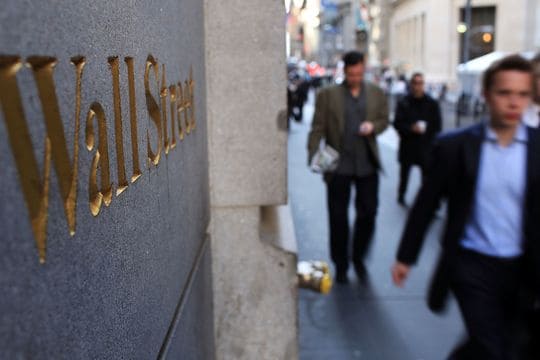U.S. stocks ended flat to lower Tuesday as investors eyed strong consumer spending data for September and third quarter earnings results, offset by a rise in Treasury yields after healthy economic data suggested the Federal Reserve may keep interest rates higher for longer.
How stocks traded
- The Dow Jones Industrial Average DJIA rose 13.11 points or less than 0.1%, to end at 33997.65
- The S&P 500 SPX fell 0.43 point, or less than 0.1%, to finish at 4373.20
- The Nasdaq Composite COMP declined 34.24 points, or 0.3% to 13,533.75
On Monday, the Dow Jones Industrial Average rose 314 points, or 0.9%, to 33,985, the S&P 500 increased 46 points, or 1.1%, to 4,374, and the Nasdaq Composite gained 161 points, or 1.2%, to 13,568.
What drove markets
About 10% of the S&P 500 index companies are due to report this week, and the majority of those who have already done so have beaten expectations on both earnings and revenues, according to Richard Hunter, head of markets at Interactive Investor.
Results from JPMorgan Chase JPM, -0.22%, Citigroup C, +0.61% and Wells Fargo WFC, +0.79% were mostly well-received by traders on Friday. On Tuesday it was the turn of their peers, including Goldman Sachs GS, -1.60% and Bank of America BAC, +2.33% and BNY Mellon BK, +3.82% to release numbers. All three produced results beating Wall Street consensus.
Johnson & Johnson JNJ, -0.91% and Lockheed Martin LMT, +0.16% also published results in the morning, while Omnicom OMC, +0.68% and Interactive Brokers IBKR, +0.61% are releasing reports after the closing bell.
In data reported Tuesday morning, U.S. September retail sales were stronger than expected, raising the possibility of the Federal Reserve at least keeping interest rates higher for longer in its quest to lower inflation.
Retail spending in September jumped 0.7%, beating forecasts. Stripping out auto sales, retail sales still popped 0.6% last month. Economists polled by the Wall Street Journal expected a 0.2% increase.
“Consumer spending shows little sign of flagging,” said Robert Frick, corporate economist at Navy Federal Credit Union. There may be signs of sagging credit card use and a switch to cash with more debit card use. “As long as the jobs market remains healthy, consumers should have the cash and confidence to maintain spending,” Frick said.
Treasury yields closed at 16- and 17-year highs on Tuesday. The 10-year Treasury note BX:TMUBMUSD10Y climbed 13.7 basis points to hit 4.846%, the highest close since 2007.
Traders say there’s a nearly 88% chance the Fed sticks with its current federal funds rate at its November meeting, according to the CME FedWatch Tool, though that’s down from Monday, when traders wagered a nearly 95% chance of another pause on rates.
Andres Garcia-Amaya, founder and CEO of Zoe Financial, said the strong retail sales are good news. “It’s another indicator that a recession is not happening” and is another data point for the soft-landing camp that thinks the Fed can pull off interest rate increases without an economic downturn.
Even though retail sales exceeded expectations, Garcia-Amaya didn’t see them as a “blow-out.” That’s a good thing because too much would be too inflationary. So Tuesday’s stock market noise connected to retail sales would lessen as investors turned back to earnings reports, he said.
Still, Richmond Fed President Tom Barkin said on Tuesday that the U.S. economy may be softer than the data suggest and this weakness may be helping to moderate inflation pressure. “There’s a story — a plausible story — that weakening demand is already working to bring inflation down to 2%,” Barkin said in a speech to the Real Estate Roundtable in Washington DC.
While retail sales were strong in September and estimates of third quarter GDP are being revised higher, Barkin said that business contacts are telling him that demand “is softening.”
In other economic data points, U.S. home builder confidence fell to its lowest level since January. U.S. industrial output increased 0.3% in September, beating a forecasted 0.1% increase.
Meanwhile, investors kept an eye on geopolitical news with U.S. President Joe Biden due to visit Israel and neighboring countries in coming days to help calm nerves that the Israel-Hamas conflict will cause a greater conflagration in the region. In Washington DC, the U.S. House of Congress failed to elect a new Speaker.
Companies in focus
- Bank of America Corp. BAC, +2.33% stock closed 2.3% higher Tuesday after it reported said a rise in clients and accounts across its business helped boost its third-quarter profit.
- Johnson & Johnson’s JNJ, -0.91% stock fell 0.9% Tuesday, after the medtech and drug company posted better-than-expected third-quarter earnings and raised its profit guidance.
- Lockheed Martin Corp. LMT, +0.16% rose 0.2% after the defense manufacturer said Tuesday it had net income of $1.7 billion, or $6.73 a share, in the third quarter, compared with income of $1.8 billion, or $6.71 a share, in the year-earlier period.
- Goldman Sachs Group Inc. GS, -1.60% stock ended 1.6% lower after reporting a lower third-quarter profit but managed to beat reduced earnings expectations on Tuesday.

